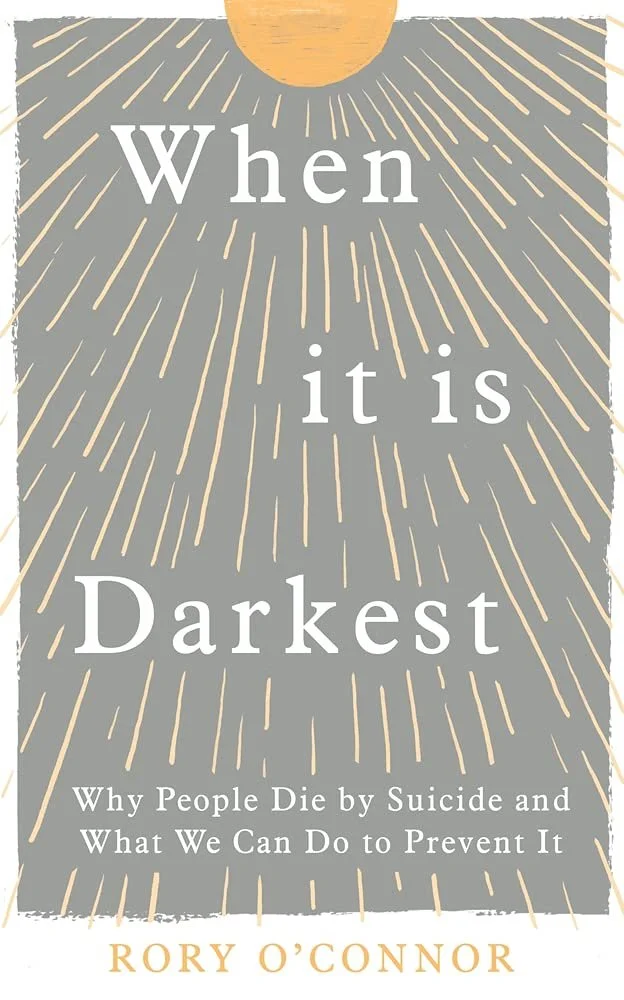Research
We have an established working relationship with the University of Glasgow, where groundbreaking research is carried out at the Suicidal Behaviour Research Laboratory (SBRL) led by Professor Rory O’Connor.
In 2019, we established the Mindstep Foundation Fellowship. With the support of our fundraisers, we have raised over £200,000 to fund this vital research. In 2025, we committed to a further two years of fellowship funding at £100,000.
You can find out more about the key research areas below. For more information about the research, visit news or the SBRL website.
Key Research Areas
-
The Mindstep Foundation has been supporting research into the factors associated with suicide risk.
Using the Integrated Motivational-Volitional (IMV) Model, the Mindstep Fellows have advanced our understanding of the factors associated with suicide risk in clinical samples of people who are hospitalised following self-harm. Applying frameworks such as the IMV model to further understanding of self-harm might assist in the development of targeted psychological interventions to reduce risk of repeat self-harm or suicide.
The studies have also focussed on the role of perfectionism among university students and the associated suicide risk. The findings featured in ‘Preventing and Responding to Student Suicide: A Practical Guide’ by S.Mallon and J.Smith.
-
The Mindstep Fellows are also working to improve suicide risk assessment and treatment planning by developing material to help clinicians incorporate knowledge of suicidal behaviour into clinical assessment. The research has resulted in recommendations for practitioners.
You can read the chapter ‘On Suicide Risk: From Psychological Processes to Clinical Assessment and Intervention’ here.
-
Together with Samaritans and Scottish Association for Mental Health, the Mindstep fellowship is supporting the UK COVID-19 Mental Health & Wellbeing Study, which has been tracking the effect of COVID-19 on the mental health of the UK adult population since March 2020.
The research has shown that young people, those with pre-existing mental health problems and those from more disadvantaged backgrounds have consistently reported higher levels of suicidal thoughts than other groups during the pandemic.
The study is the most detailed examination to date of the mental health and wellbeing of the UK adult population. The research findings have been published for the first and second Covid wave. You can also read the research on the association between Covid infection and poorer mental health, as well as the relationship between information seking, mental health and loneliness.
-
The Mindstep Fellows have also conducted a systematic review of the impact of Infectious Disease-Related Public Health Emergencies on Suicide, Suicidal Behavior, and Suicidal Thoughts.
This review has helped to understand suicide risk during the COVID-19 pandemic by reviewing research from past pandemics. You can read the full review here.
When It Is Darkest
In 2021, Professor Rory O’Connor published ‘When it is Darkest’: why people died by suicide and what we can do to prevent it.
Drawing on decades of work in the field of suicide prevention and research, the book untangles the complex reasons behind suicide and seeks to dispel any unhelpful myths.
For those trying to help someone vulnerable, it will provide indispensable advice on communication, stressing the importance of listening to fears and anxieties without judgment. And for those who are struggling to get through the tragedy of suicide, it will help you find strength in the darkest of places.
Available from Amazon.
Depression - It’s really not all in the mind
In 2024, Mindstep supported Young People’s Mental Health on the production of their research “Depression – It’s really not all in the mind”
Bringing together five years of research and innovation, the report:
Summarises the factors and mechanisms that can lead to depression, such as societal and social factors; individual options and choices, experiences and underlying conditions, and psychological characteristics; and the influence of these factors on biological systems associated with depression.
Explores the effects of everyday things, such as the food we eat and chronic stress, on the biological mechanisms that can lead to depression – and what we can do to reduce risks.
Describes approaches to help individuals, parents and carers to make effective change.
Outlines methods to facilitate change in organisations and in government policy.


